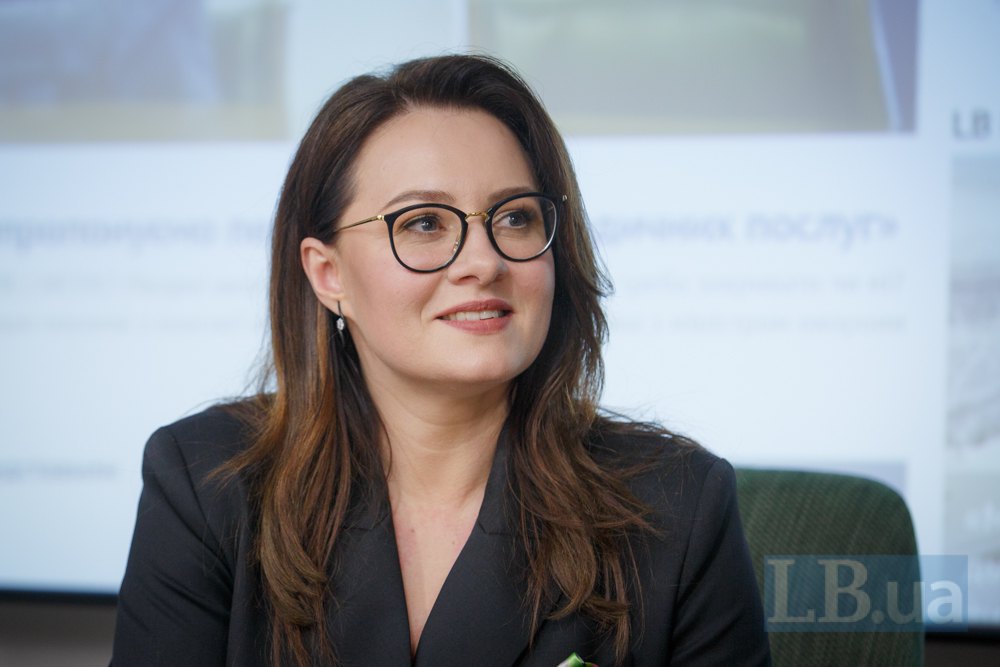
Following the Ukrainian Recovery Conference: what is the mood of foreign investors, are they ready to invest in Ukraine despite the war?
We are back with inspiring results - more than 100 deals, $16 billion. Funds for energy, in particular, more than $800 million from the United States. During the first Global Peace Summit, this funding was also announced by US Vice President Kamala Harris. The total support from the US, including for energy, amounted to $1.5 billion.
This includes $500 million in new funding for energy assistance and the redirection of $324 million previously announced for emergency energy needs in Ukraine. These funds can be used to repair energy infrastructure damaged during the war, expand electricity production, encourage private investment, and protect energy infrastructure.
Coming back to the results of the URC, the conference also announced the creation of joint defence enterprises, new instruments for insurance against war risks, new co-investment instruments from international financial institutions, two large-scale alliances worth $7 billion to support small and medium-sized businesses and $700 million to strengthen human capital and retrain Ukrainians. If we went to Berlin with a list of needs, we came back with a list of solutions and mechanisms for their implementation.
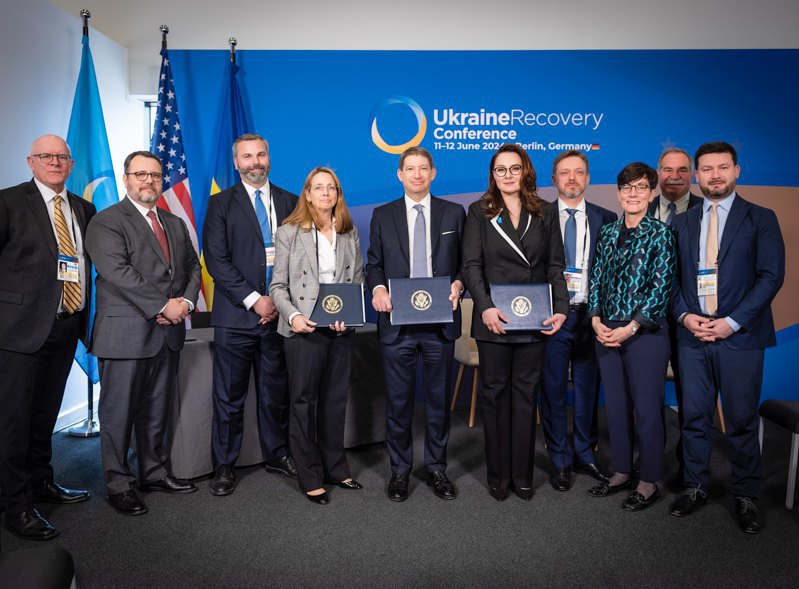
What priority needs were discussed during the URC2024?
An important item on the agenda is energy recovery. Russia has destroyed 9 GW of electricity through systematic shelling. This is half of the available installed capacity. In Berlin, we identified companies that are ready to enter the Ukrainian market and build 1 GW of generation in the future.
Another top priority is additional air defence systems. Without this, no matter how we rebuild the energy sector, it will be under threat. In Berlin, we heard from Olaf Scholz that Ukraine can count on new Patriot, Iris-T, Gepard, and more.
The third is the development of the defence industry. Since the beginning of the invasion, the capacity of the Ukrainian defence industry has increased sixfold. We are now producing drones, ammunition, and machines that help us with demining. Producing weapons in Ukraine means delivering them to the frontline faster, repairing them and, consequently, saving lives. And, of course, it is also an opportunity to support the economy. If at least half of the budget we spend on arms purchases remained in Ukraine, we would get a 3.6% increase in GDP growth.
On the eve of the URC, the first joint venture between Ukroboronprom and Germany's Rheinmetall for the repair and production of armoured vehicles was opened in Ukraine. The next step is to repair Leopard tanks in Ukraine and localise the production of Lynx infantry fighting vehicles.
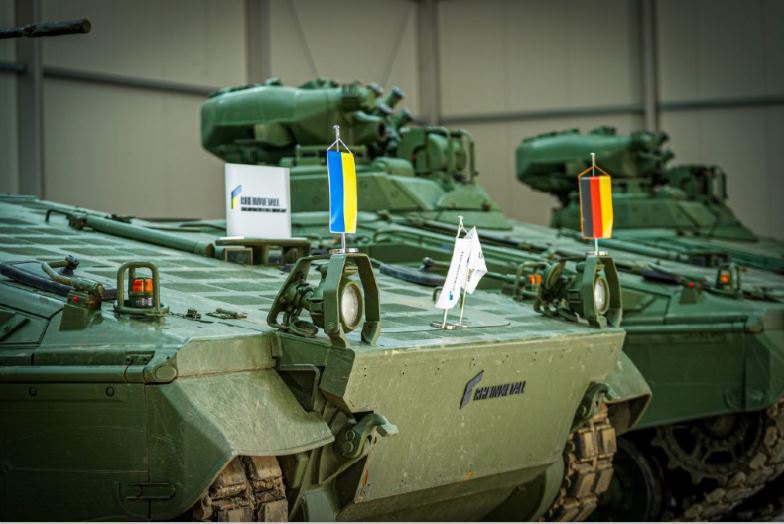
The fourth is the economic bloc. Here, we need three things at the same time: strengthening macroeconomic stability, accelerating economic recovery and boosting growth.
Our macroeconomic stability depends on timely and predictable financing. We are actively working with our international partners to ensure their continued support, and we are looking to extend our planning horizon to at least 2027. But funding from partners is not the only tool. About $300 billion of Russian assets are frozen in the European Union, the United States, the United Kingdom and other countries. The day after the conference, we received an important decision by the G7 to use the excess profits from the confiscated Russian assets to repay the $50 billion in loans that our partners are ready to provide to Ukraine. This is the basis for our macro stability in 2025.
What guarantees can we provide to foreign investors? Which international institutions have expressed their readiness to support Ukraine?
During the URC, we contributed to more active involvement of investors in the Ukrainian market through several important steps.
We are starting to work on the Project Preparation Facility, essentially creating an infrastructure for preparing high-quality investment projects.
The second is war risk insurance. The US Corporation for International Development (DFC) has expanded its war risk insurance instruments. It will now be available to small and medium-sized businesses.
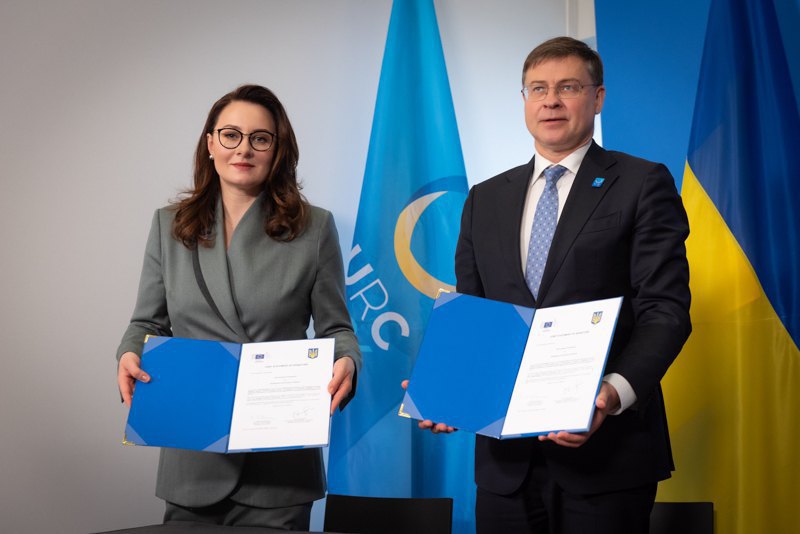
And finally, the involvement of the private sector. During the URC, the investment component of the Ukraine Facility, the Ukraine Investment Framework, was launched. The European Commission signed 14 financing and guarantee agreements with various international financial institutions. These agreements include €1 billion in loan guarantees and €400 million in blended grants. The SME Resilience Alliance was launched, which includes programmes worth more than €7 billion. In addition, Ukrainian companies have signed 14 business agreements with German and international partners totalling more than €560 million. The agreements cover such sectors as industry, agricultural machinery, and renewable energy.
In addition, we launched and held the first meeting of the Business Advisory Council. The advisory board includes CEOs of leading global companies and business associations from the US, Canada, the UK, Norway, the EU and Ukraine who are interested in investing in the Ukrainian economy. This platform will provide practical advice and counselling on how to improve the business climate and attract private sector investment.
All these specific measures lead to a specific goal - economic resilience. They clearly show that both investors and partners are ready to invest in Ukraine now, without waiting for the war to end. They show once again that the war is not an embargo on investment.
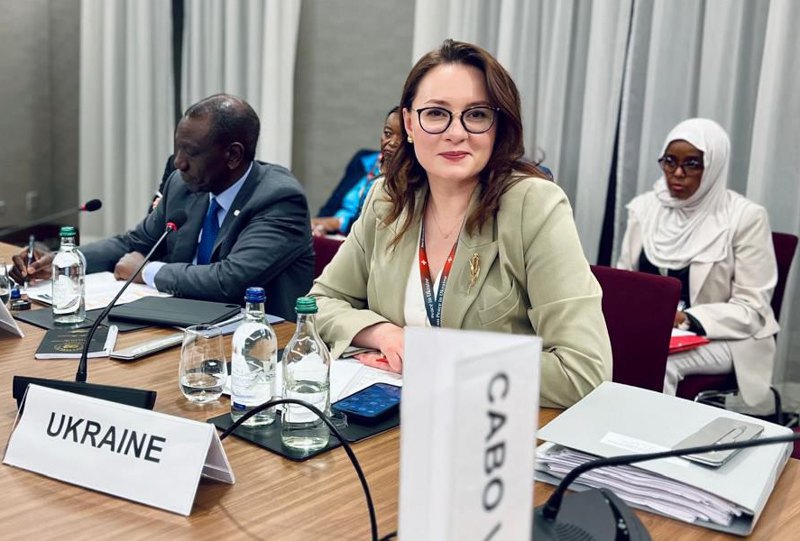
From the Ukrainian side, you continue to coordinate the activities of the working groups on food security - we have good support from the countries of the Global South. What are the results in this area after the Peace Summit?
The war that Russia has unleashed against Ukraine has undoubtedly hit global food security. The consequences of this blow and the methods of overcoming it were the topic of our conversation with the Summit participants.
The unprecedented surge in international wheat prices to more than $450 per tonne in the spring of 2022 came as a shock to consumers around the world. The blockade of sea routes in the Black Sea hit Ukrainian farmers hard, as they were selling wheat for less than $100.
In addition to the blockade of sea routes, farmers faced another problem that Russia brought with it: land mines. 10% of arable land in Ukraine is potentially contaminated with explosives. The total area of land in need of demining is 144,000 square kilometres.
However, thanks to joint efforts with our partners, and primarily the Armed Forces of Ukraine, we have been able to resume food exports from Ukraine and are gradually demining the territories.
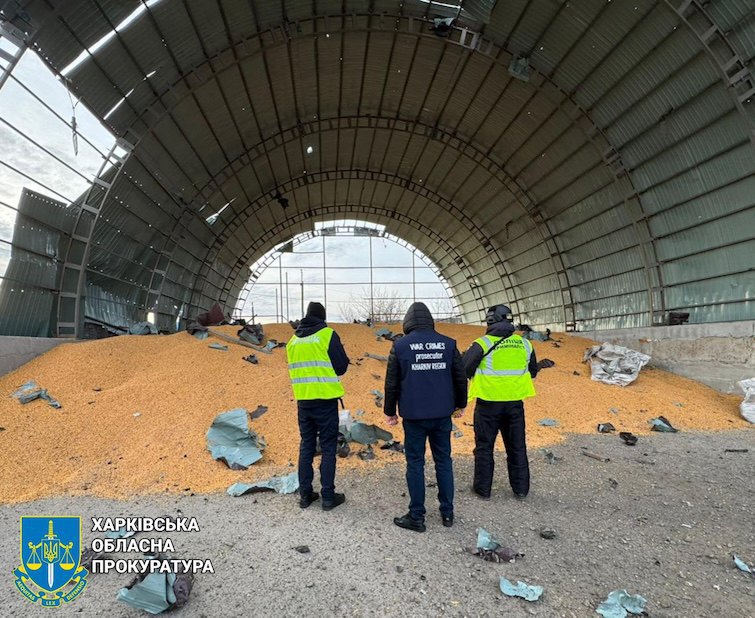
We have maintained production of key agricultural products. This year's production forecast is 76.1 million tonnes of grains and oilseeds. Our cargo transportation capabilities are improving. In April 2024, we exported 9.6 million tonnes by sea. This is almost at the level of February 2022.
As for exports by sea, July 2023 was the last month of Russia's participation in the Black Sea Grain Initiative. That month, we exported only 503 thousand tonnes of grain. Russia allowed only 13 vessels to leave Ukrainian seaports. By comparison, in August 2023, Ukraine launched an alternative corridor. Since then, 1,737 vessels have used it. In the first 10 days of this month alone, we have already exported more by sea than in July 2023. When we do not have sabotage from Russia, the sea routes work effectively.
But despite these improvements, the food security system is still fragile. Russia continues to attack infrastructure, storage facilities, and the energy system. Therefore, during the Peace Summit, we tried to develop practical actions and measures to be taken to ensure that the war that Russia started in Ukraine does not affect the level of hunger in the world.
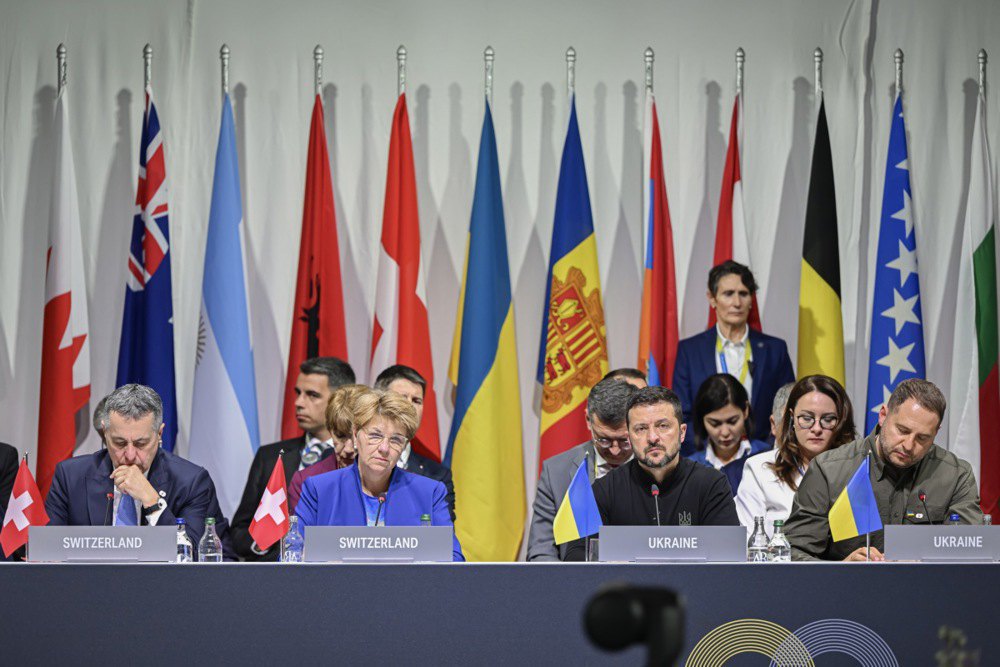
What kind of measures are we talking about?
All noted that under no circumstances should freedom of navigation be blocked. This applies to resources such as fertilisers or fuel. If these basic things are secured, we will be able to work together with our partners to improve domestic production in countries that import food, to ensure the continuity of these supplies.
It is important for Ukraine to make Russia stop using food as a weapon.
The fact that we were able to raise the topic of food security, as well as radiation safety and the release of our prisoners and the return of deportees to such a high level is a truly historic event.
What is the main result of the Peace Summit, in your opinion?
One hundred and one states and international organisations registered to participate in the first Peace Summit. All parts of the world, all continents were represented at the Summit: Latin America, North America, Africa, the Middle East and Asia, the Pacific, Australia, Europe.
Both the Ukrainian and Swiss teams have been working on this for several months. During all of our international working visits, we invited our partners to join the Summit, for example, during our recent trip to Latin America. And I am very pleased that countries such as Chile and Argentina were represented at the Summit at the highest level.
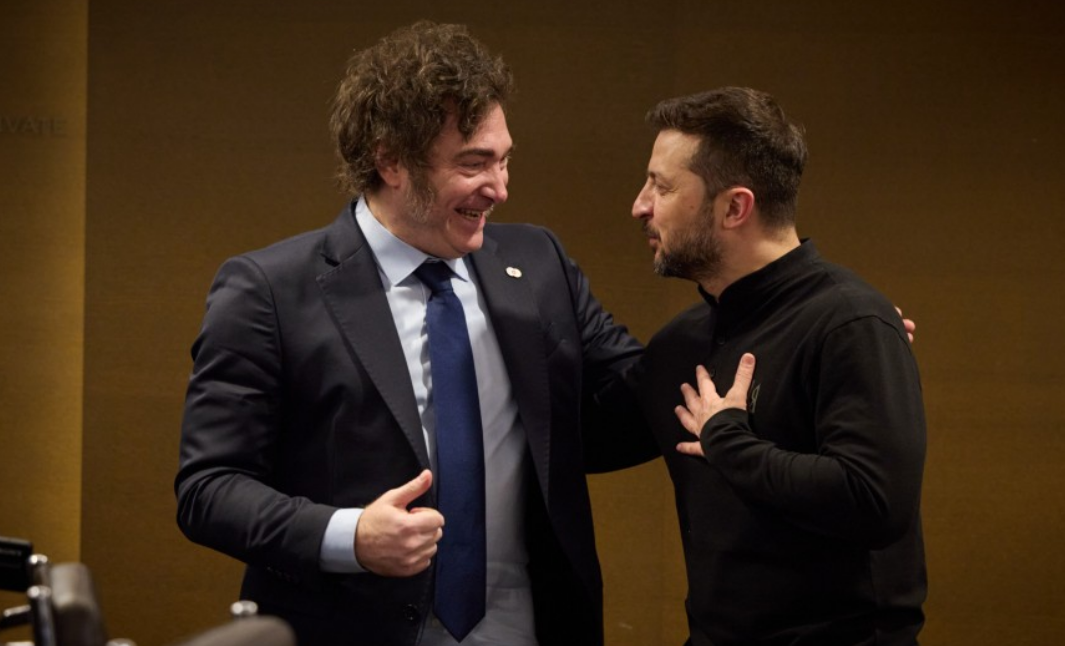
The summit is a great work of Ukrainian diplomats, Ukrainian diplomacy and personally President Volodymyr Zelenskyy, who had 50 phone conversations with leaders of countries about their participation in this event. In fact, we have launched a new format for resolving global issues.







